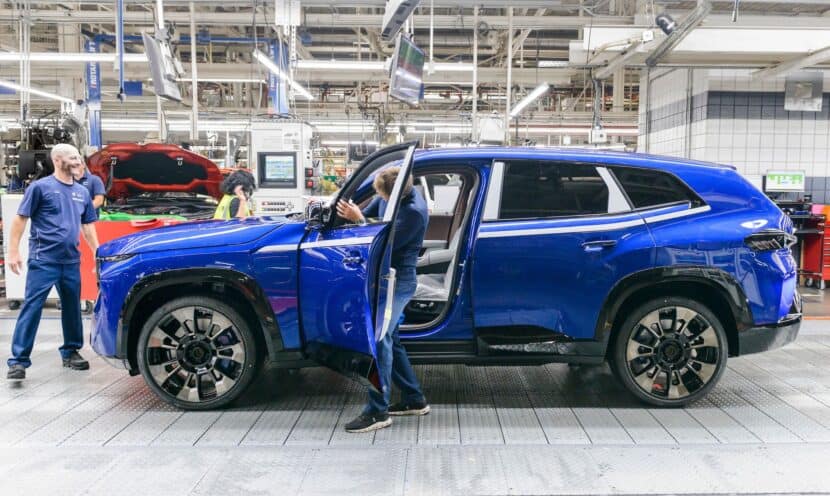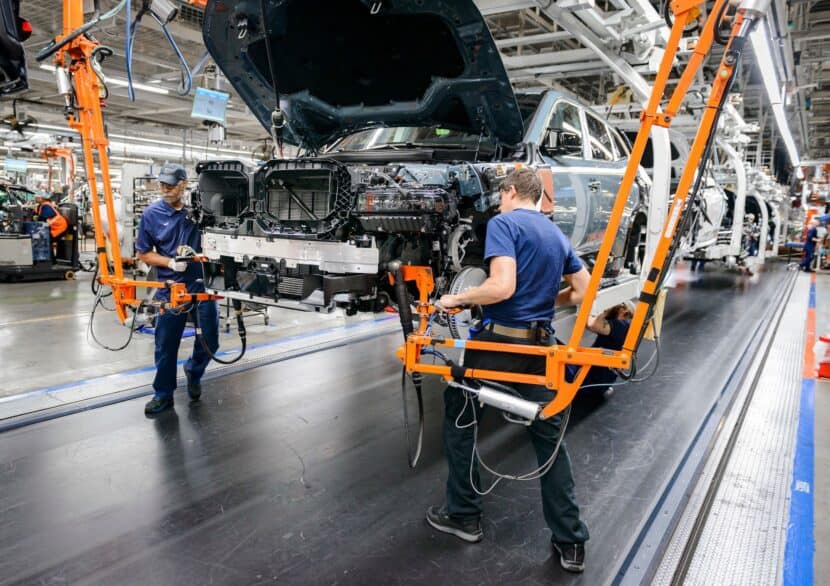With the dust settling on the United States election, some automakers may be panicking at the prospect of a Trump presidency. With the promise of sky-high tariffs on goods produced outside the US, BMW could be among those nervous about sanctions. But Oliver Zipse – BMW’s CEO – doesn’t seem to be too worried about it. A share of what experts are projecting to be $80 billion in new tariffs Trump presidency, he says, might not be much for Bavaria to fret over. Perhaps more surprisingly, he might be more right than he is wrong.
US-Based Production Gives BMW an Edge

Zipse was quick to point out one of the biggest advantages BMW has over other – particularly European luxury – automakers. Plant Spartanburg in South Carolina provides production for all of the US market’s BMW SUVs – and much of the rest of the world’s, too. Either way, the US-based plant provides “some natural cover-up against possible tariffs,” Zipse said in an interview. And we have to admit – he’s kind of right about that. The X3 and X5 are huge sellers for the brand, with the X3 being the brand’s best-selling model in 2023. Not bad – especially when you consider the 2023 X3 was the second to last year that specific generation was in production. It sold around 350,000 units.
Flexible Architecture Could Help BMW Shift Production if Needed

There’s another reason that tariffs may not impact BMW has severely as some competitors. BMW’s flexible architecture implies that they could shift production – and increase offerings – with relative versatility. For example – while today we only see SUV production at Spartanburg, there’s little (relative to other automakers, anyway) standing in the way of BMW theoretically re-tooling for other cars, too.
As a reminder, the CLAR platform that the X3 uses is the same one used by the G20 3 Series, Z4, current 2 Series, and even the 5 Series. That covers a lot of bases. That said; it’s unclear whether or not BMW would even have anything to gain by shifting production to different models, since the X models outsell all of those by quite a wide margin. But, it’s a tool in their utility belt for sure.
Sizing Up the Competition
Competitor Mercedes-Benz has a plant in Tuscaloosa, Alabama – where many of the 11,232 US-based Mercedes-Benz workers are employed. 295,000 vehicles left their factory in 2023. Audi doesn’t have US-based production, but its parent group VW does in Tennessee. There, around 5,500 employees work and around 175,000 vehicles roll of the assembly line each year. When you compare these figures to BMW’s 2023 production – well over 400,000 units – it’s easy to see why Zipse thinks the Munich-based automaker might come out of this one okay.
The tariffs likely coming with the changing administration will impact almost every good and drive the cost of, well, almost everything up. In an interview, Zipse remains opposed to the tariffs, despite the company’s “big footprint in the United States for the United States.”





































































